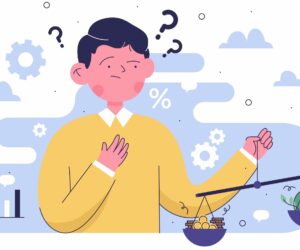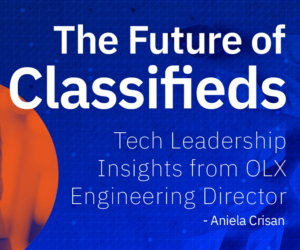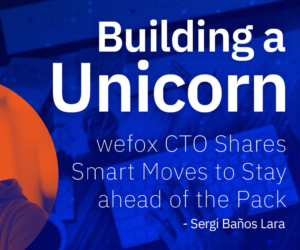Some observers are comparing the new generation of artificial intelligence to breakthroughs as major as the arrival of electricity or computing itself. Beyond the furor and the excesses, what does AI really mean for business? Are there already applications and projects that confirm this general craziness? Frédéric Lasnier, CEO of Pentalog, answers my questions.
By Cyrille de Lasteyrie, digital explorer.

Cyrille: Is the current madness around AI just another buzz phenomenon, like blockchain or the metaverse, or is it a deeper upheaval?
Frédéric Lasnier: The upheaval goes much deeper. Ultimately, blockchain was another way of doing processing, but it was still just information processing. Here though, we are talking about establishing a new relationship between human and machine. It’s the machine that answers my question. It’s much deeper because the economic implications are immediate. This causes widespread fear. No one was afraid of blockchain or the metaverse.
Cyrille: Is AI a subject at Pentalog, and if so, since when?
Frédéric Lasnier: We’ve been on it actively for three years, now. We’ve been experimenting with the tools for a long time, but above all, around what it could change for our customers. From the moment we implemented DataOps, it became a more intense concern. When we integrated low-code, it also became an even more intense concern, in particular on the time that these tools could potentially save.
Cyrille: And then came OpenAI…
Frédéric Lasnier: OpenAI is recent and we started to use it right away. We have seen that it is possible to mechanize certain parts of the skills assessment of developers and engineers with a success rate totally comparable to that of a seasoned expert. We always imagine that this kind of tool only replaces low-skilled tasks, but here we have associated it with genuine expert work. AI will therefore force us to reinvent the relationship to skills, in particular on hyper-sophisticated processes, which until now were believed to be reserved for human intelligence. And not only on hard skills! The most surprising thing is that it also works on the evaluation of soft skills, that is, relational and emotional intelligence.
Cyrille: With its proprietary evaluation system, Pentalog claims to offer the Top 3% of tech talents in the world. How will AI improve this score?
If we compare the skills assessment made by AI with one made by an expert, we are now reaching a compatibility close to 85% and this is progressing every day. The result is that AI can refine the assessment extremely quickly and our experts can complete more quickly to validate, correct, refine. “Human + AI” cooperation is super efficient, and very often superior to a human alone. But considering the demands of unicorns and large corporations, and also the importance of things left unsaid and human subtleties, we will never leave it entirely in the hands of AI; but we are going to improve all our processes, eliminate certain biases, save time at all stages, and – inevitably – reduce costs.
Cyrille: I have seen some impressive figures on this subject. Our Innovation Studio calculated that last year, in 2022, if we had already been able to take advantage of our new Human+AI system, we would have saved 80%!
Frédéric Lasnier: Yes, that figure concerns the cost of the self-assessment by candidates and the processing carried out by experts for the validation and conclusions. In fact, it is huge. This saving affects only one of the lines in the budget, but I have no doubt that we will all find new sources of optimization everywhere in the coming months.
Cyrille: Are there any customers who are asking us for AI today?
Frédéric Lasnier: We discuss that in all our meetings. Sometimes they don’t yet know how they will exploit it, but the subject is everywhere. That said, AI alone means nothing. What matters is the data available. So it is not enough to say: “We want to do AI”; the companies that will optimize this tool are those that already have a solid data strategy and process. Of course, we can use AI now thanks to the dozens of apps that are appearing every day, to create content, translate, simplify tasks by the dozen, and so on. However, this is at the risk of depending on these external applications, or even of being deprived of them (as in Italy which banned ChatGPT for a while). To perform, the company must have or implement a serious DataOps policy very quickly, if it has not already been done.
Cyrille: Are you worried about developers and coding jobs?
Frédéric Lasnier: Coding will be affected, of course. As with every time there is a technological innovation, there is an increase in productivity and enormous changes in the way of doing things. But at the same time, every time, new needs are absorbed and require new skills, and so it goes. We may have a little less pure and hard coding, but we will have more engineering.
Cyrille: One of our clients, Carsup, already seems to have taken the measure of AI to improve the very nature of its service?
Frédéric Lasnier: Carsup does high-end concierge services for cars. There is therefore a huge knowledge base to maintain and, potentially, to exploit. The idea that has emerged in particular is to boost vehicle maintenance activity via AI, which will know each model and version of each brand in detail. Once linked to vehicle data (mileage, wear, etc.), the Carsup model will be able to refine its alerts very precisely. This is ultra-targeted predictive maintenance. So on the one hand, there is a “content” approach, because they will be able to produce all the maintenance sheets (which they could never have done without AI). On the other hand, they will divide the maintenance into periods and distribute the information within their customer relations tools, in particular in the App made available. So they can do both AI and automation: it’s a winning combination! Carsup customers are by definition people who want the best for their vehicle; AI will make it possible to meet their quality-of-service requirements.
Cyrille: Can all start-ups improve their business even when at the same time it seems that investment funds are a bit slow?
Frédéric Lasnier: Yes, it will allow start-ups to do things they hadn’t even planned on. They will use AI in its cost reduction function, which will be an alternative to fundraising. They will be able to increase their volume of development and shake up both their customers and their shareholders. “Spend less, do more!”









